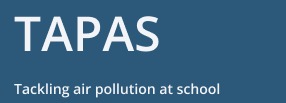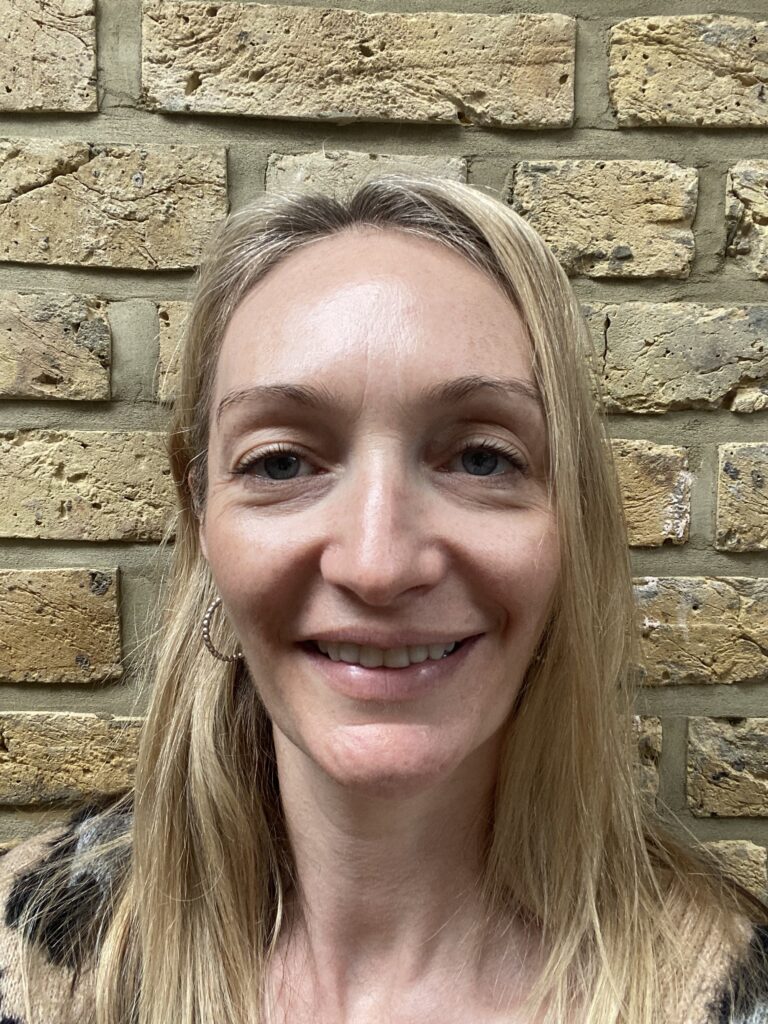The 4th Ask: what is the impact of air quality on your lung health?
 TAPAS stands for Tackling Air Pollution At School and we are a network of experts working together to better understand the air quality inside and around our schools. Atmospheric pollution in the UK is responsible for approximately 40,000 early deaths and has a cost of around £20 billion to health services and business, per year1. Children are particularly susceptible to air pollution and dirty air has been linked to rises in child asthma GP visits.
TAPAS stands for Tackling Air Pollution At School and we are a network of experts working together to better understand the air quality inside and around our schools. Atmospheric pollution in the UK is responsible for approximately 40,000 early deaths and has a cost of around £20 billion to health services and business, per year1. Children are particularly susceptible to air pollution and dirty air has been linked to rises in child asthma GP visits.
But why are young children more vulnerable to air pollution? Children take in a larger amount of air per unit of body weight compared with adults so when this air is toxic it can have more damaging effects on their still developing immune systems and lungs2. The impact from this dirty, toxic air can ripple into other critical aspects of their lives such as needing more doctor visits, being hospitalised, missing days off school and generally affecting their well-being negatively.
Our TAPAS colleagues at Global Action Plan estimate that in the UK 3.4 million children learn in an unhealthy environment. Air quality is an environmental challenge that requires a collaborative effort from multiple disciplines and sectors and the TAPAS Network is one of several networks in the UK that are tackling this challenge.
3.4 million children learn in an unhealthy environment
TAPAS is one of six Clean Air Networks funded by the Government’s Strategic Priorities Fund ‘Clean Air Programme’. The aim of the Clean Air programme is to bring together the UK’s world-class research base and support high-quality multi- and interdisciplinary research and innovation to develop practical solutions for today’s air quality issues and equip the UK to proactively tackle future air quality challenges, in order to protect health and support clean growth. As a group of networks, we are working together to maximise the benefit to the air quality community.
Our work at TAPAS is broken down into four in-depth content areas relating to schools and air quality:
- Understanding the problem
- Understanding the solutions
- Prioritising the solutions and,
- 4) Dissemination and outreach. We host regular meetings and hold workshops on topics of interest with expert speakers.
To change the conversation on air pollution we believe it is essential to engage directly with children, schools and parents. Our team includes education and citizen science specialists who will help us to effectively build schools outreach into our work programme. A new project we are involved with is called SAMHE (Schools’ Air quality Monitoring for Health and Education, pronounced ‘Sammy’). This project is supported by the Department for Education and will help us understand indoor air quality in UK schools. SAMHE is important because poor air quality can have impacts on pupils’ concentration levels and their health, affecting both attendance and attainment. SAMHE also gives pupils the opportunity to be citizen scientists and do hands-on experiments with their monitors. If you would like to learn more about the project and how your school could get involved click here.
CoSchools is another project led by TAPAS researchers which was developed as part of the CO-TRACE project. CO-TRACE is an EPSRC funded project involving researchers from the University of Cambridge, the University of Surrey and Imperial College London. To assist with the UK government’s rollout of CO2 monitors to schools, CoSchools developed four videos, and other materials, that aim to explain how CO2 monitors can help teachers manage their classroom ventilation to provide a more comfortable and healthier learning environment. A PowerPoint presentation has also been developed for schools to download for free and use with staff, to help explain why CO2 monitors continue to be important, even after the pandemic. Maintaining low levels of CO2 in your schools may help improve children’s learning and concentration.
We are also funding three small and innovative research projects that support our ambition to develop the research base to design and operate healthy schools in the environment of the future. Each project focuses on the overarching question “How can we deliver timely and effective interventions to improve air quality at school?”.
TAPAS is funded until September 2023 but what will our legacy look like once the project comes to an end? We hope to build a central repository of research-based evidence and resources for schools, students and parents to use, to make it easy for them to get the help they require to empower their schools and pupils. We also hope to get air pollution onto the curriculum to educate the next generation and raise awareness of the impacts of air pollution on children, which can be linked not only to asthma but also to high blood pressure, heart disease and stroke, dementia, obesity and cancer2.
Every summer, Global Action Plan runs a Clean Air Day event which is gaining momentum year on year and 2023 will no doubt be even bigger. But you don’t have to wait for next year to get involved – Clean Air Day should be everyday! Download school resources now for activity sheets, informative posters and campaigning tips to help educate on air pollution and have some fun. Global Action Plan have also developed a Clean Air for Schools Programme which is a free, practical online tool for schools to create a tailored clean air action plan to tackle air pollution in and around the school. They have also developed a ‘Knowledge hub for health’ which is a great resource for information on clean air for health professionals, linking air pollution to asthma plans.
Another group linked to TAPAS is the Clean School Air not-for-profit campaigning and resources group which helps parents and schools who want to improve air quality for their children. They have guidance and practical interventions for parents and teachers to improve air quality and reduce pollution in their children’s schools.
Top tips for reducing your exposure to air pollution
- Keep yourself updated on high pollution alerts and notifications
- When air pollution is especially severe, try to avoid strenuous activity, and minimize playing or exercising in the harmful air.
- If possible, walk, cycle, or scoot to school and avoid busy roads where possible.
- Reduce time spent in areas where pollution is high, such as near or around areas of severe traffic congestion or sources of industrial pollution. Where possible, travel during times of day when air pollution is lower which can help reduce exposure.
- Ensure adequate ventilation when cooking to reduce indoor air pollution.
- Limit any wood burning stoves in the home as the tiny particle pollution can enter the bloodstream and be extremely hazardous to health3.
 TAPAS welcomes any new members who are interested in working towards better environments for our children at school. Members of TAPAS are welcome to join any of our focus group activities or to work with us directly on bespoke research. If you would like to join TAPAS to receive our newsletters please click here or email the TAPAS Network Manager, Kat Roberts at kr526@cam.ac.uk.
TAPAS welcomes any new members who are interested in working towards better environments for our children at school. Members of TAPAS are welcome to join any of our focus group activities or to work with us directly on bespoke research. If you would like to join TAPAS to receive our newsletters please click here or email the TAPAS Network Manager, Kat Roberts at kr526@cam.ac.uk.
By Kat Roberts (Network Manager, TAPAS Network, University of Cambridge)
References
- https://www.rcplondon.ac.uk/projects/outputs/every-breath-we-take-lifelong-impact-air-pollution
- https://www.unicef.org/sites/default/files/press-releases/glo-media-Danger_in_the_Air.pdf
- https://www.theguardian.com/environment/2021/feb/16/home-wood-burning-biggest-cause-particle-pollution-fires
Visit the #AskAboutAsthma 2022 campaign page for more content.
